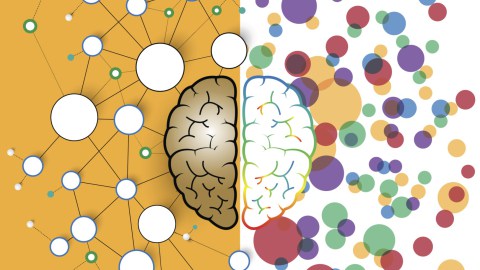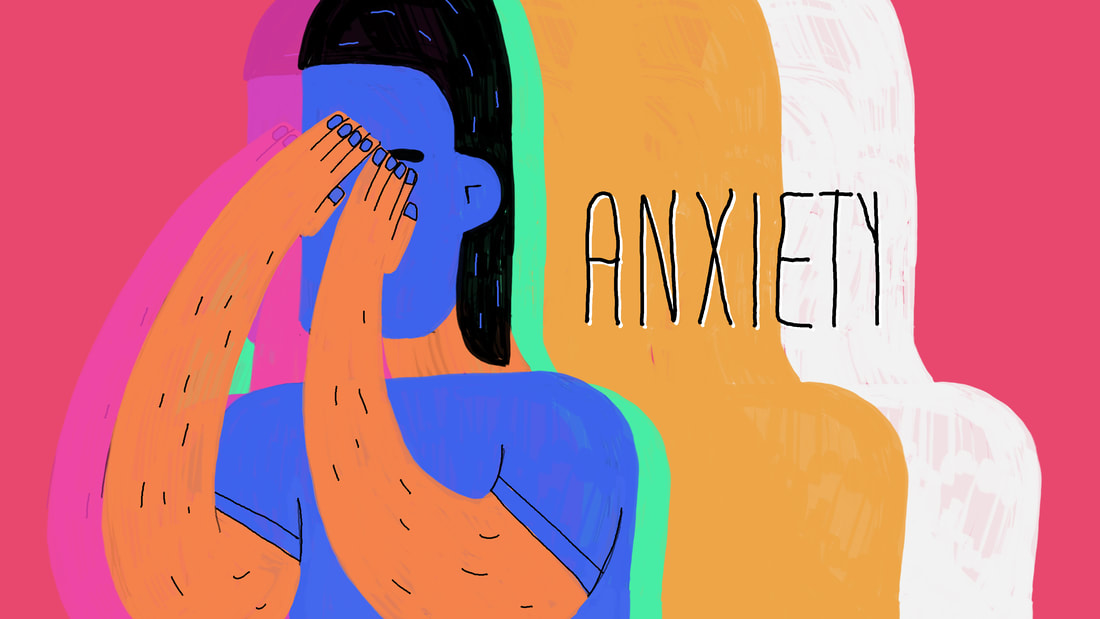|
When something stressful or traumatic happens in your life your brain functions differently! Under everyday circumstances, the brain interprets, processes, encodes, stores or disposes of information. This entire process occurs differently under stress.
The "mind-body connection" occurs on a physical, chemical and energetic level. The brain processes various mental activities including thoughts, beliefs, attitudes, and emotions. These different activities will impact the body positively or negatively. This occurs because the nervous system, endocrine system, and immune system share a common chemical language. Hormones and neurotransmitters allows constant communication between the mind and body. Neurological pathways connect parts of the brain that process emotions with the nervous system, cardiovascular system and digestive tract. This is why major life events, stressors, or complex emotions can manifest physical symptoms. There are many times in your life when you have experienced a mind-body connection. Think back to the last time you felt butterflies in your stomach when you felt nervous, a fight-or-flight sensation when you were suddenly scared, or a tension headache when you are under immense stress. Once you understand the mind-body connection you see that stress can easily dysregulate the body. When you are under constant amounts of stress the brain continues to flood the body with fight or flight hormones. The stressful event along with the flood of hormones can cause you to feel stuck in an anxiety-depression roller coaster as the physical body is triggered by sensory stimuli. Using mind-body techniques to tap into the stored trauma within the body can create emotional healing for the body, mind, spirit and soul. What do you do with your anxiety? Do you allow it to cripple you? Do you allow it to build up and fester inside of you? What if I told you that anxiety is healthy and you are suppose to use it to help you. What if I told you that anxiety can be a powerful tool to make changes in your life!
First, we need to understand that difference between healthy and unhealthy anxiety. Healthy Anxiety Some anxiety is normal and is expected in life; being anxious or nervous before making an important decision, a special performance, or a big test. In these situations, anxiety can help you focus on the task and give you the excess energy you need to get through the situation. In a life threatening situation your body will trigger the sympathetic nervous system in a ‘fight or flight’ response. Once triggered the amygdala activates the HPA (hypothalamus pituitary adrenal) axis, which releases stress hormones like adrenaline and cortisol into your system. This response is designed to move us to action, either to fight or to flee for survival. Once you are safe and the threatening situation is over, the parasympathetic nervous system activates the ‘rest and digest’ response to return the body to homeostasis. Unhealthy Anxiety Anxiety can become overpowering when it is triggered over non-life threatening situations or in situations where you feel powerless. This is especially true in situations where conflict arises in an unbalanced power dynamic like an overbearing boss, abusive spouse, or authoritarian parent. These feelings are compounded with the lack of ability to 'fight' for what you feel is right or to 'flee' the situation. Being forced to endure the conflict with no resolution can create anxiety and lead to ruminating thoughts. The flood of stress hormones is released into the body and you experience shaking, sweating, increased heart rate, dry mouth, muscle tension and rapid breathing. This response without action is stressful on the body. Eventually the perceived threat is over but the sympathetic nervous system is still activated due to the rumination of the conflict in your mind. As your mind is re-living the event – the nervous system is working on over drive. Due to the rumination the parasympathetic system is slow to respond. The ‘rest and digest’ response either doesn’t occur or is delayed. When anxiety is triggered due to a past trauma or PTSD, your body cannot perceive the difference between a real or imagined threat. After a past trauma, even healthy confrontation can trigger intense anxiety. Due to the duration of the past trauma, your brain is like a super highway, wired to be always alert for dangerous situations. Regardless of whether you are experiencing a real or perceived threat – unhealthy anxiety occurs when it is affecting your day-to-day life. If anxiety is interfering with your ability to emotionally connect with family and friends, to focus at work or school, to attend social functions, or to eat and sleep - then it is unhealthy! How to Harness the Healthy Anxiety Think back to a time when you allowed anxiety to help you. Was it before a big presentation or an important conversation? Did you harness the energy boost and really deliver results? How did you feel afterwards? Did you feel excited or were you self critical and ruminating? Now that you understand that anxiety is triggering the ‘fight or flight’ response, you see that anxiety can be a significant catalyst for action and decision-making! When you experience anxiety – move your body! Give yourself permission to fight or flight. Give yourself permission to respond to situations instinctually, instead of freeze with fear. Don’t ruminate! Let me say that again…DON’T RUMINATE! Push the excessive thoughts out of your mind! I know that can be easier said than done, but making a commitment to not ruminate and instead replace it with a health coping skill (such as using a positive mantra, using mindfulness breathing, or just allowing the thoughts to pass by) is the foundation of cognitive behavioral therapy. It is effective and is scientifically proven to work! Take inventory of your fears, triggers, and hidden belief systems or self criticisms and seek out a mental health counselor. Working through your past fears can release the power they have over you. Discovering your unhealthy belief systems or self criticisms can change how you respond to the world around you. Therapy has shown to literally change the functions of the brain and can change how your body reacts to stress therefore reducing your unhealthy anxiety. Therapy is often under utilized but is the most effective tool you can gift yourself. |
AuthorCrystal A Hawkins, MEd., LPC is a Mind Body Counselor in Oklahoma City, OK. ArchivesCategories |


 RSS Feed
RSS Feed